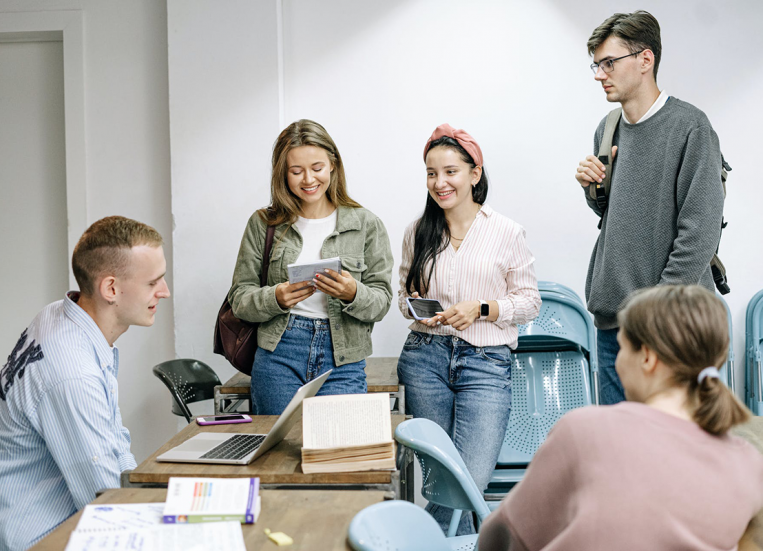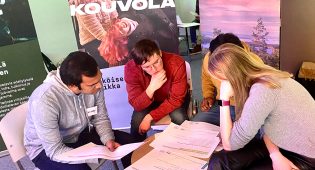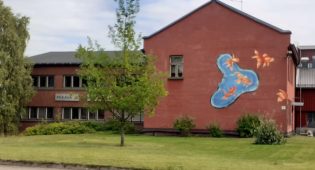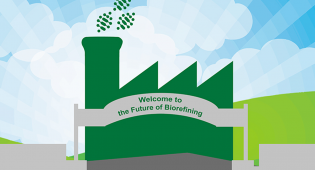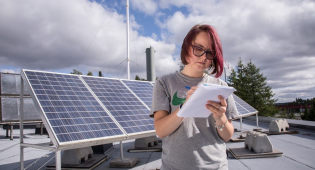Reflections on developing the international student mindset for an efficient work-life cooperation
04.12.2023Over the past few years, a dramatic transformation in students’ learning skills has been visible. From active recipients of information from lecturers and passive participants in the traditional educational group process, students have become active transformers of educational life, initiators of educational spin-offs, and international catalysts of project activities.
Students act as intercultural brand managers, promoting the activities of Finnish educational institutions in hitherto unknown and less popular markets. Thus, high-quality, innovative processes in the educational environment begin and end in the interaction of students at different levels. The more heterogeneous the student interaction environment is, the more non-trivial solutions can be obtained. For almost ten years, there have been numerous successful examples where interdisciplinary, international teams of students created social and technological innovations.
For example, the Summer in Space cooperative intensive program in Mikkeli provided an opportunity to test innovative educational solutions with students from Kosovo (Kakkonen 2015). The applied concept of art-based learning made it possible to develop the transversal skills of the participants (Finnish National Agency for Education, 2023). With the help of songs, theatrical sketches, raps, and much more, students communicated new, bold solutions through real work cases. Immersive immersion in a 24/7 format, pro-active team interaction, focus on the media environment, and much more have brought forward the unconscious and intuitive in developing business cases.
The bilateral exchanges of study groups, together with their teachers, made it possible to investigate neighbouring countries within the framework of the ongoing FIRST and CBC projects in 2015-2021. These projects provide a space to create innovative interaction between several levels of education: high school, gymnasium, college, university of applied sciences, university, and a cluster of industrial enterprises in neighbouring countries (Race4Scale 2022).
The region of South-Eastern Finland is undergoing re-internationalization due to changing geopolitical and social orientations and, in part, due to the active role of students. Here, it is no longer enough to have international programs that train bachelors and masters in practical areas of knowledge. There is a need for a qualitative update of the organizational culture at enterprises in the region. This is only possible with equal use of Finnish and international students and comprehensive multilingualism in work processes. The latter can be explained by the fact that language, in principle, acts as a means of communication. However, with the availability of augmented and virtual reality and online translators of spoken and written speech in real-time, the need to know the national language should gradually fade into the background. Bilingualism (Finnish and English), or, better yet, multilingualism, should be developed at the corporate level, both in educational institutions and in the business environment.
Take the example of Germany, where, in addition to German, English is the official language of everyday life. If language as a means of communication becomes international, then the emergence of born-global innovative solutions among Finnish students will become commonplace since their mindset, transversal skills, and working culture will become globally cultural. In France, on the contrary, global culture is born through the networking of French-speaking regions and the multi-sidedness of interregional interaction (Akkari & Radhouane, 2022). That is, the French or English language itself is not a solution to the problem of reorganizing educational or work culture. The necessary conditions are only created through language for understanding the so-called “conditions of the game” and forming interdisciplinary team decisions.
This will lead to a lasting change in the organizational culture of enterprises and thereby help Finland realize its intercultural working and social potential. Xamk has a strong intercultural role in the evolution of learning culture and creating an international English-speaking learning environment among Finnish and international students.
Finland is a forge of global educational reserves. Our role as educators is to facilitate this hitherto hidden potential.
List of references
Akkari A. and Radhouane M. 2022. Intercultural Education in France. Intercultural Approaches to Education, Feb. 2022, 117–128. WWW-document: https://www.researchgate.net/publication/358912513_Intercultural_Education_in_France [Referred: 12.11.2023].
Finnish National Agency for Education 2023. Transversal competences in Finnish general upper secondary education. WWW-document: https://www.oph.fi/en/education-and-qualifications/transversal-competences-finnish-general-upper-secondary-education [Referred: 14.11.2023].
Kakkonen M.-L. (ed.) 2015. ”Summer in Space 2014”: Digital business development course. Mikkeli University of Applied Sciences. WWW-document: https://www.theseus.fi/handle/10024/89321 [Referred: 14.11.2023].
Race4Scale 2022. Development of the Multidisciplinary Educational, Business, and RDI Opportunities for the Finnish-Russian Automotive and Motorsport Industry Ecosystem. WWW-document: https://www.xamk.fi/en/research-and-development/race4scale-development-of-automotive-and-motorsport-ecosystems/ [Referred: 13.11.2023].
































